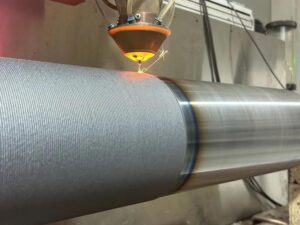What is Hardness?

Hardness refers to a material’s ability to resist deformation, scratching, or indentation. In manufacturing, it is a critical property that ensures materials can withstand operational stress. Unlike strength or toughness, hardness focuses on surface resistance—how well a material can endure wear and pressure.
For metals, hardness indicates durability under constant use, while for plastics and composites, it shows how well they maintain form under stress. From aerospace to automotive and construction, understanding hardness is essential for ensuring components meet their functional requirements.
Historically, craftsmen assessed hardness manually, by striking or scratching materials. Today, modern hardness testing methods allow precise, reliable measurement, forming the backbone of quality assurance in manufacturing.
Importance of Hardness Testing in Manufacturing
Hardness testing plays a pivotal role in manufacturing by ensuring materials meet required standards.
- Quality Control: Accurate hardness testing ensures materials meet specifications. For instance, a soft gear may wear quickly, while an overly hard one could become brittle.
- Predicting Wear Resistance: Hardness often correlates with wear resistance, making testing crucial for parts like cutting tools, bearings, and machinery components.
- Heat Treatment Verification: Metals undergo treatments such as quenching or tempering to modify hardness. Testing confirms these processes achieve desired results.
- Material Selection and Design: Engineers rely on hardness data to select suitable materials for products, ensuring safety and longevity.
Without proper hardness testing, components may fail prematurely, leading to costly recalls, safety hazards, and wasted resources.
Common Hardness Testing Tools
Several tools and methods are used to measure hardness accurately. Selecting the right hardness testing tool depends on material type, size, and application.
Rockwell Hardness Test
The Rockwell test is widely used due to its speed and simplicity. It applies a load to an indenter and measures the depth of penetration. Scales like HRC and HRB are chosen based on the material being tested.
Brinell Hardness Test
This test presses a steel or tungsten carbide ball into the material and measures the indentation diameter. It is ideal for softer metals and coarse materials.
Vickers Hardness Test
Vickers testing uses a diamond-shaped indenter and is suitable for thin materials or coatings, providing highly precise results.
Knoop Hardness Test
Using an elongated diamond-shaped indenter, the Knoop method is excellent for delicate materials, thin films, or small parts.
Mohs Hardness Test
An older method ranking minerals by scratch resistance. While less precise, it remains useful in geology and certain industrial applications.
By combining these tools, manufacturers can select the most accurate method for metal hardness testing or other materials.
Hardness Testing Standards
Consistency in hardness testing is maintained through established international standards.
- ASTM Standards: ASTM E18 (Rockwell), ASTM E10 (Brinell), ASTM E384 (microhardness).
- ISO Standards: ISO 6508 governs Rockwell hardness testing globally.
- DIN Standards: European standards ensuring reliability across industries.
Compliance ensures test results are repeatable, accurate, and globally recognized—a must for automotive, aerospace, and medical manufacturing.
Challenges of Hardness Testing
Despite its importance, hardness testing comes with challenges:
- Surface Preparation: Rough or contaminated surfaces can lead to inaccurate readings.
- Material Variability: Uneven hardness in alloys or composites complicates measurement.
- Indenter Wear: Regular calibration is essential for accuracy.
- Operator Error: Proper training is necessary to minimize human mistakes.
- Environmental Factors: Temperature, humidity, and vibration may affect sensitive tests.
Addressing these challenges requires adherence to standards, proper equipment maintenance, and skilled operators.
Conclusion: Precionn’s Expertise in Precision Machining
Hardness testing ensures the strength, durability, and reliability of manufactured components. From verifying heat treatment to predicting wear resistance, it provides crucial data for informed decisions.
Precionn, a leader in precision machining, combines industry-leading techniques with rigorous quality control, including comprehensive hardness testing. With a commitment to precision, international standards, and customer satisfaction, Precionn delivers reliable machining solutions tailored to global markets.




